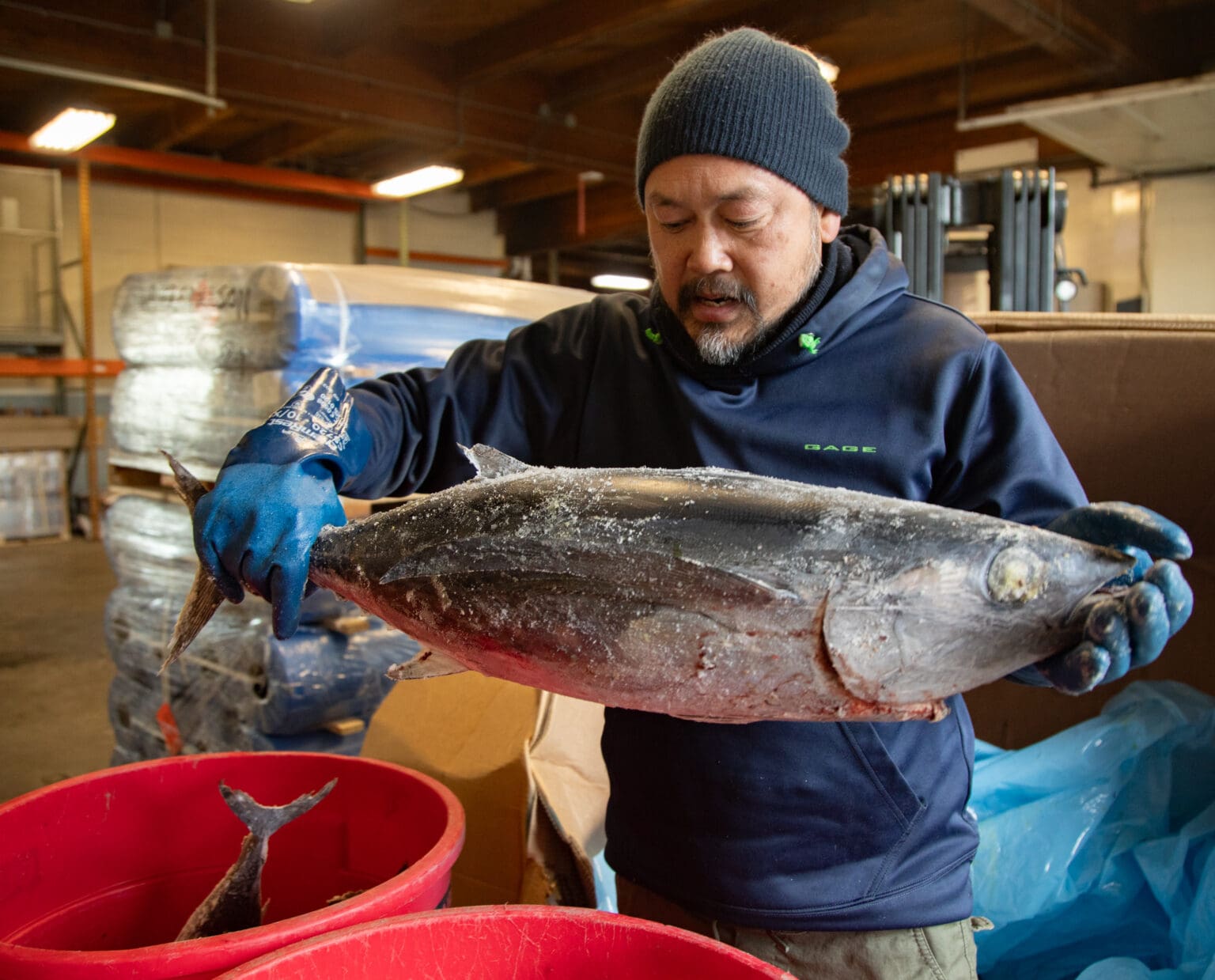Editor’s note: Working Waterfront is an occasional series that captures the past, present and future of Whatcom County’s waterfront, and highlights the people behind the industry. In today’s story, meet some of the fishermen who call Whatcom County home.
Whatcom County has a long tradition of fishermen harvesting from shorelines and deep seas. The tradition continues with just a fragment of former numbers of American and European immigrants who feasted on — and depleted — local salmon runs, and even smaller numbers of the Lummi Nation and other Indigenous people who sustained themselves from the waters for thousands of years.
For many, fishing is cultural — a way of life — while serving as a source of sustenance and survival.
Over the last few decades, the industry has changed drastically with the loss of fish and the institution of fish farms among other environmental issues. Conversations have heightened regarding the sustainability and profitability of the operation and the ocean itself as the world and fishermen look to the future of the seafood industry.
What has not changed for many fishermen, however, is a deep appreciation and respect for the water and the life that swims below. While fishing is mostly a labor of love, that motivation fuels maintenance of the long tradition in Bellingham and Whatcom County.
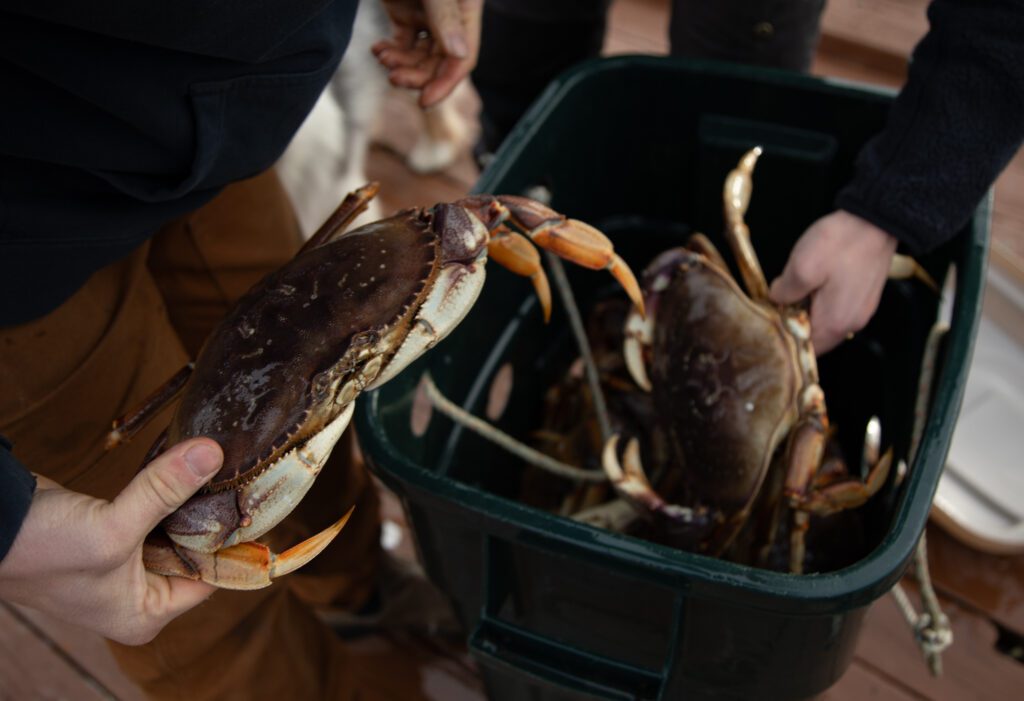
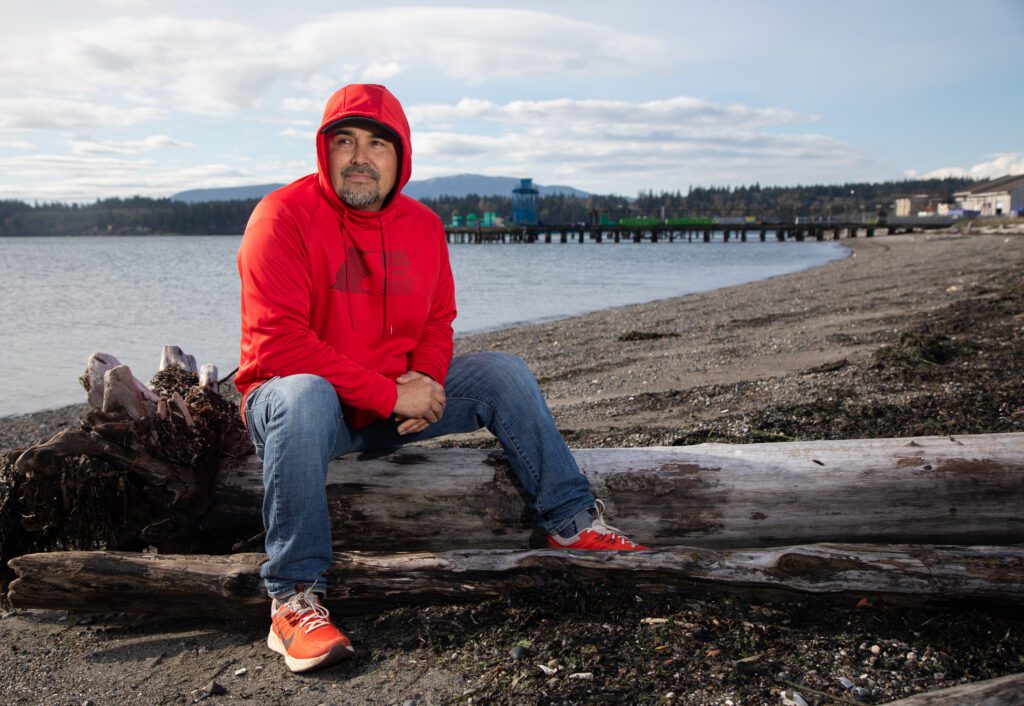
Terry Phair
Terry Phair is a member of the Lummi Nation and began fishing with his parents as a baby. Currently, he dives commercially for sea cucumber, sea urchins and geoduck and fishes for salmon, halibut, prawns and Dungeness crab. Phair opened the Lummi Seafood Market in 2017 and works to connect the Whatcom County community with locally sourced seafood.
How did you get into commercial diving?
It’s more sustainable [than fishing]. There are more openings, more days of work because not everybody wants to dive. Most people are scared of that. I had to do a lot of training to get over my fear. There’s a lot of things — being in the water by yourself, no other diver with you for an hour or two, just you and the sea creatures.
What has been your success in bringing more locally harvested seafood, besides salmon, to local dinner plates?
I think from this year to last year — when we did the Bellingham Dockside — I’ve seen it double in interest. People are starting to know what it is and coming back again. It feels like we’re teaching people how to eat [local] food.
What do you see for the future of fishing and the maritime industry?
I tell most of the fishermen that we all need to try to be our own personal markets. We got to try to add value to our products, or we are not going to be able to survive. Fishermen are not making enough money versus the economy. You have to be creative. Like, we created the Salmon Woman canned salmon, and that’s another opportunity for us to try to preserve our salmon.
How has fishing changed?
I think about the old-school teaching of our late old chiefs … The most wealthy chief was the one that could catch the most fish and share with all the villages. You were wealthy because you shared the most. It’s different now. We do it for the money, but also our fishermen still do it the old-school way, where they share a lot.
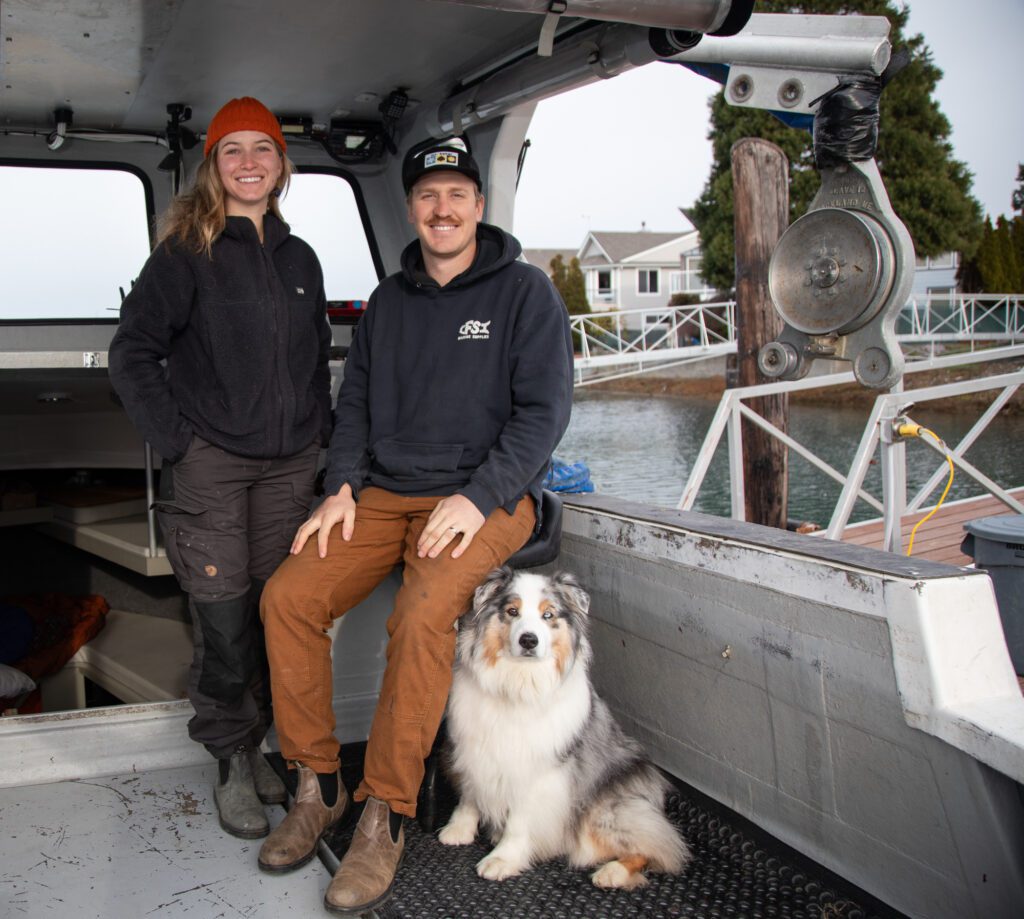
Jace and Elisa Rinker
Jace and Elisa Rinker have been married for less than a year and have fished together for about three years. Jace is the grandchild of Italian immigrants to Bellingham and a fifth-generation fisherman. The pair own Slack Tide Fisheries and spend summers fishing for salmon in Alaska’s Bristol Bay, and winters catching crab off the West Coast.
What draws you to fishing?
Jace: Tradition is a lot of it for me, and I don’t feel freedom anywhere else like a day on the water. I feel like it’s what I’m supposed to be doing.
Elisa: I really enjoy being connected to our natural world, so that was a big draw for me — this spirit of adventure that lives naturally within a fishing career. To be able to do something together that is of meaning, and fishing together was a really fun thing.
What does a year look like for you?
Elisa: I feel like our year always starts over in June, which is when we head up to Bristol Bay. We spend eight weeks up there, and then come back. We start fishing for salmon here in Puget Sound. Once crab starts, we crab here. So, October, November, December is here, and eventually we go down to California, so that’s the rest of our year. Our off-time right now is April and May, which is also just prepping for Alaska. We’re always either finishing one fishery or getting ready for the next.
The industry is dominated by people of older generations. What is it like being young and getting your career started?
Jace: I have family and that helped me get into it. We still lease permits — we don’t own any. A lot of the old guys own permits and boats, and they’re hanging on to it and waiting to get out, so that makes it hard for young people to get into it.
What do you see for the future?
Elisa: Right now, the fishing industry is feeling those effects of post-COVID really heavily, feeling the effects of inflation really heavily. In the next five to 10 years, there’s going to be a lot of shifting, as far as people aging out, and hopefully, it makes it easier for younger people. But, I think we all just have to work together. I think in the future, as well, there slowly seems to be some workings in the federal government. They’re realizing that if there isn’t support behind fishermen … we’re a dying breed, basically.
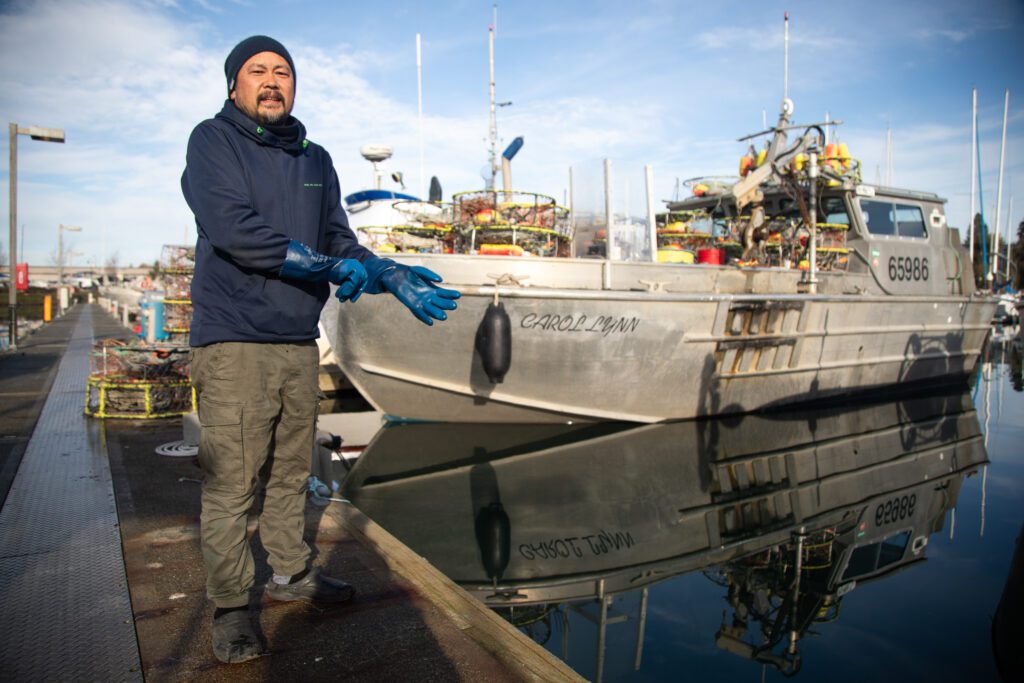
Ficus Chan
Ficus Chan fishes primarily for crab and prawn on his family’s boat. He helped establish the Bellingham Dockside Market and regularly sells crab and other goods through his business, Bellingham Crab. He also works as a fisheries observer in the U.S. and Canada.
How did you get started in the fishing industry?
I never had in my life thought I’d become a commercial fisherman, nor did I think I would be a fishmonger. When I graduated from high school, I didn’t really know what to do, but I just loved fishing. My personal thought was, ‘Wouldn’t it be great if somebody paid me to play with fish?’ And then, here I am.
What motivates you?
I studied fisheries and resource management up in Canada. It’s interesting for me. Part of the fascination, I would always ask myself, as I learned all the things, ‘Can you eat this?’ I love cooking, and I’ve always questioned or tried to challenge what our local cuisine is here in the Pacific Northwest.
What does your future in the industry look like?
[Life] is very busy for me, so I’m trying to manage, what do I really want to do? I find myself in this situation right now with the circumstances that I have, which is great, but what is my overall mission? Do I want to grow seafood vending? Or, do I want to do more fisheries? I have a lot of different dreams and experiences that I want to see happen here, and so I’m still trying to figure that out.
What do you hope for in the local community?
I would love our local community to grow in their understanding of the significance of our maritime industry and, also, to be proud of the fact that we have so many different kinds of fish landing here. It’s a great thing. The Dockside Market is a place for them to try to access that before it gets shipped off somewhere else. I want to see Bellingham become a place where people know it for its seafood.
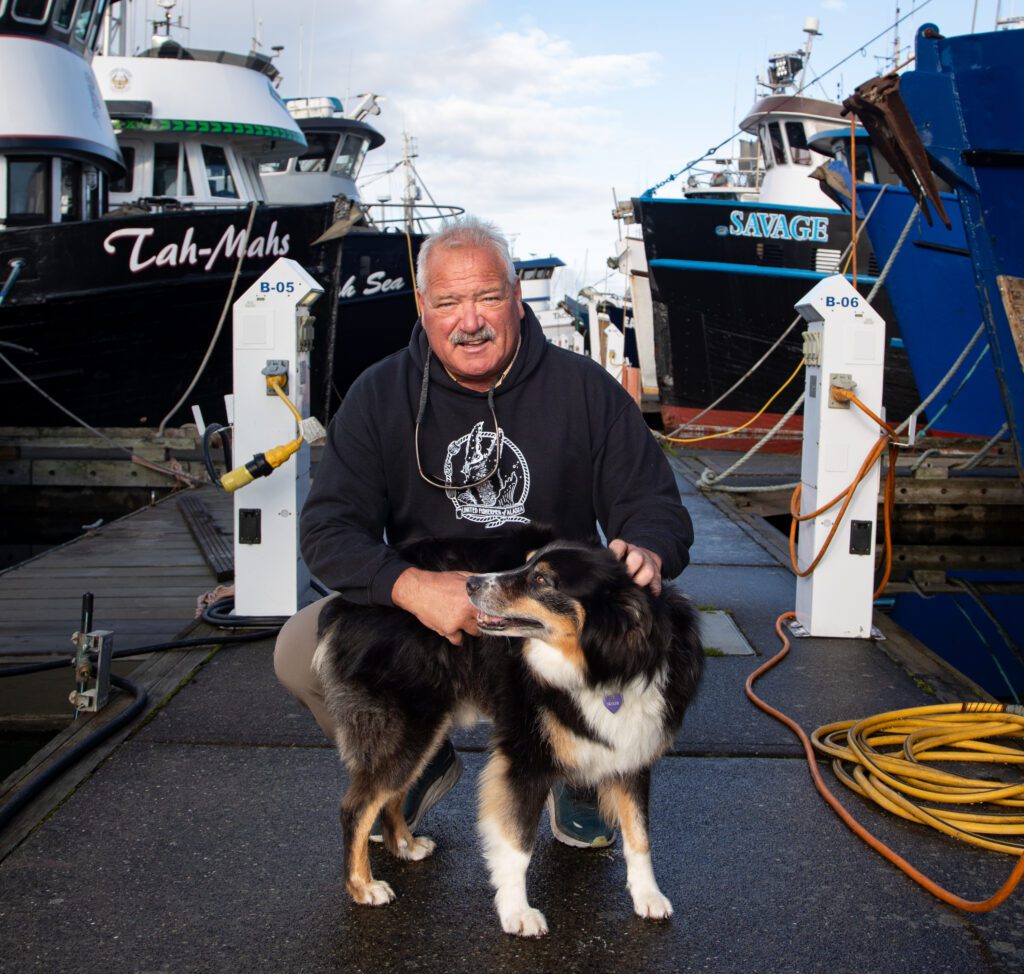
Michael Jackson
Michael Jackson has been a commercial fisherman since 1978 and spends months each year fishing out of Bristol Bay in Alaska. When not at sea, he spends his days in Bellingham. He serves as the chairman of the Salmon Committee for the Alaska Seafood Marketing Institute and an advisor for the organization, Commercial Fishermen for Bristol Bay.
Why did you become a fisherman?
My path to becoming a fisherman is pretty standard. I started as a crewmember as just a job to pay for my climbing habit and to pay school bills. This led to me climbing less and fishing more. As a result, my climbing partners got better and better, while I just got scared. I just couldn’t keep up with them anymore. Over time, I became more and more interested in fishing as a career and saved my money to buy my own boat and permit.
Commercial fishing isn’t known to be an easy job or way of life. What has kept you doing it for so long?
Commercial fishing is one of the most honest ways to make a living on Earth. Your success is a direct result of how well you prepare, how well you maintain your equipment, and how well you can put it all together when it comes time to go fishing. You also get to do this in one of the most incredible places on the planet: Alaska. I have not always been able to have a successful season, but I have never quit, and I never will.
What do you like about fishing in Alaska?
Where I currently fish is Bristol Bay, it is the eighth wonder of the world as it is home to the largest annual migration on the planet: Bristol Bay sockeye salmon. My two older sons might not agree, but my fondest memories involve Bristol Bay and fishing with them. Where else can you experience a whale leading you out of a shallow channel twice in the same day in two different locations?
What do you see for the future?
Currently, prices paid to fishermen are at all-time lows adjusted for inflation, and seafood markets are depressed due to oversupply, inflation and international currency fluctuations. That being said, we have been here before in the seafood industry. With great challenges come great opportunity, and I see innovation in processing as one immediate bright spot moving forward. Northline Seafoods is building a floating freezer barge [the Hannah] right here on the Bellingham waterfront that will revolutionize both how fish are processed and how fishermen are paid. I have much hope for the future and know this short-term pain will result in a long-term gain.
Coming in February: The future of Whatcom County’s working waterfront, and a glimpse into local boat manufacturer All American Marine.

